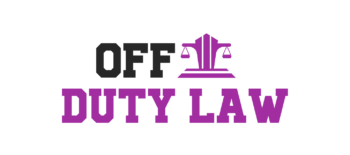In recent years, the sharing economy has emerged as a disruptive force in various industries, revolutionizing the way people access goods and services. Platforms like Uber, Airbnb, and TaskRabbit have gained immense popularity, providing individuals with the opportunity to share their resources and skills for a fee. However, this new economic model has also raised concerns about safety, fairness, and legal compliance. As a result, the role of law in regulating the sharing economy has become essential to ensure its responsible growth and protect the interests of all parties involved.

Ensuring Consumer Protection and Safety
One of the primary roles of law in regulating the sharing economy is to establish consumer protection and safety standards. Since sharing economy platforms often involve transactions between strangers, there is an inherent need for regulations that guarantee the safety of both service providers and consumers. The law can require background checks, insurance coverage, and safety inspections to mitigate potential risks. By imposing these regulations, the sharing economy can build trust and credibility, attracting more users to participate in these platforms.
Promoting Fair Competition and Market Efficiency
Another crucial aspect of law in regulating the sharing economy is promoting fair competition and market efficiency. Traditional businesses often face stricter regulations and taxation requirements compared to sharing economy platforms, creating an uneven playing field. The law can address these disparities by establishing a level playing field, ensuring that all participants operate under similar rules and regulations. Additionally, the law can also prevent anti-competitive practices, such as price-fixing or monopolistic behaviors, to foster healthy competition and market efficiency.
Addressing Labor and Employment Issues
The sharing economy blurs the lines between traditional employment and independent contracting. Many individuals participating in sharing economy platforms are considered independent contractors, which exempts them from various labor protections, such as minimum wage, overtime pay, and workers’ compensation. Lawmakers are increasingly recognizing the need to address these labor and employment issues by reevaluating existing employment classifications and establishing regulations that protect the rights and benefits of individuals engaged in the sharing economy.
Ensuring Tax Compliance and Revenue Generation
As the sharing economy continues to grow, tax compliance and revenue generation become significant concerns. Due to the decentralized and often peer-to-peer nature of sharing economy transactions, tax collection can be challenging. The law plays a vital role in establishing clear guidelines for tax reporting and ensuring that sharing economy participants fulfill their tax obligations. By doing so, governments can generate revenue from the sharing economy to fund essential public services and infrastructure development.
The sharing economy has undoubtedly transformed various industries, providing opportunities for individuals to monetize their underutilized resources and skills. However, the role of law in regulating the sharing economy is critical to address concerns related to consumer protection, fair competition, labor rights, and tax compliance. By establishing appropriate regulations, governments can strike a balance between fostering innovation and ensuring responsible growth in the sharing economy.











